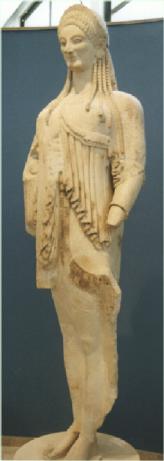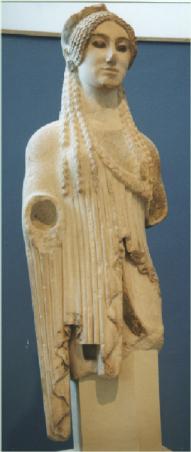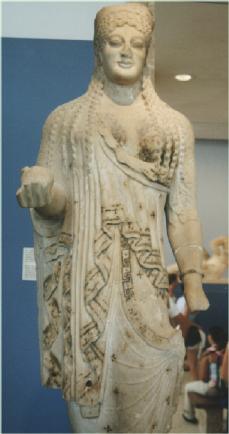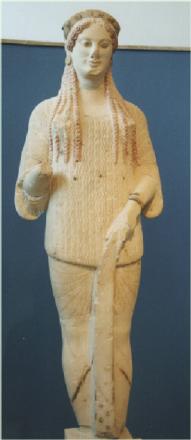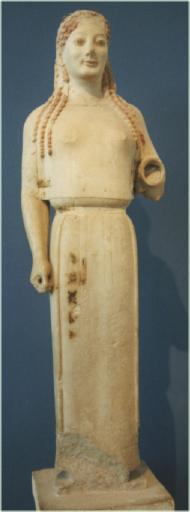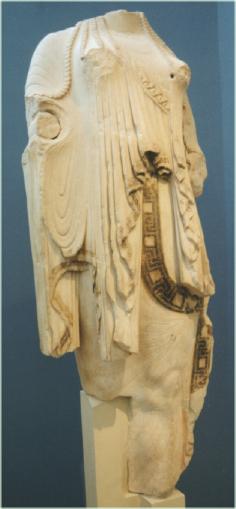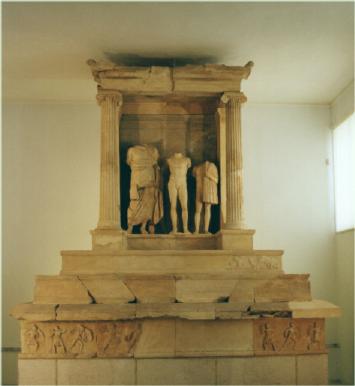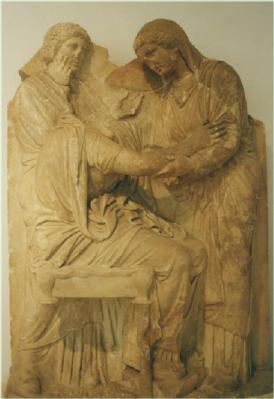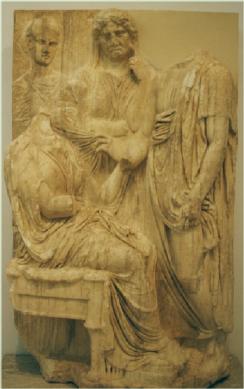Athens, Greece
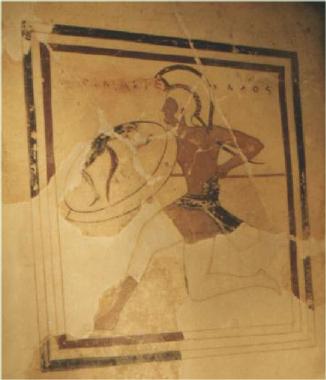
A warrior, natch
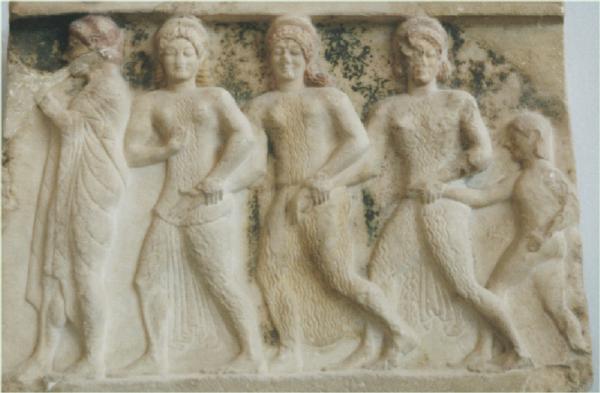
The Three Graces--Aglaia (Splendor),
Euphrosyne (Mirth), and Thalia (Good Cheer).
The little kid tagging along
is Cupid, I think.
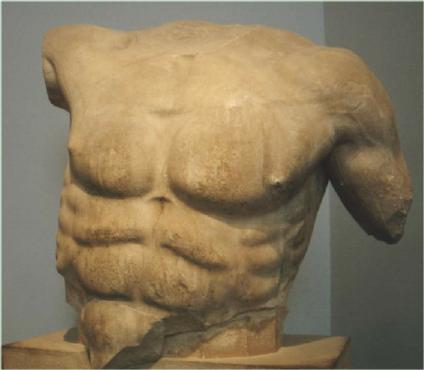
Nice pecs! In classical Greek
sculpture and painting, women's bodies were almost
always rendered clothed, while
men's bodies were almost always rendered nude. Go figure!
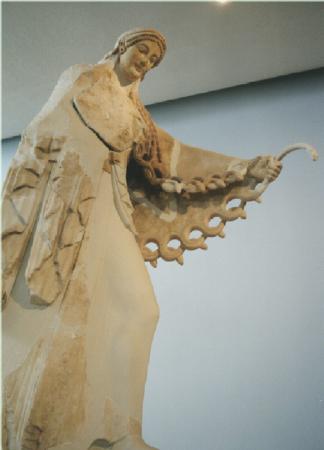
Athena fighting a giant--you
go, girl!
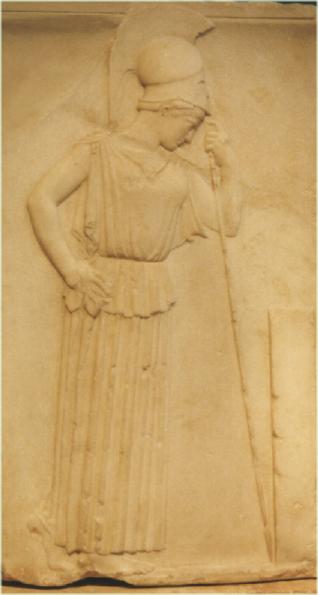
Athena in a more contemplative
mood.
This one is known as the "Mourning
Athena."
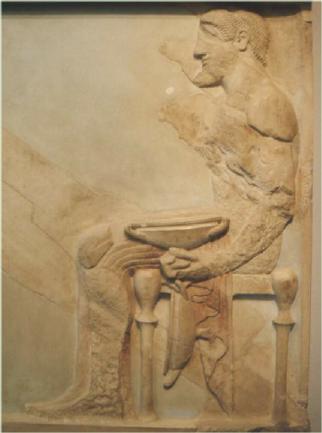
A guy with a very big wine
glass,
this must be Dionysus
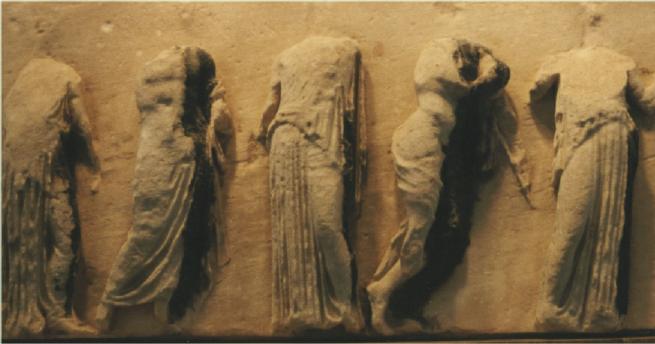
Gods and goddesses who have
lost their heads
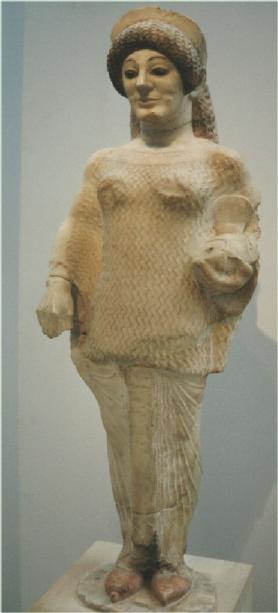
I think I saw this outfit
in Chico's the other day...
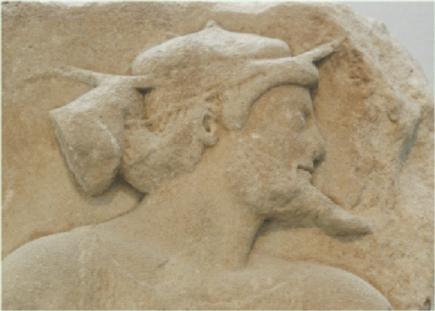
Pan: half-man, half-goat.
Only in Greece does this sound plausible.
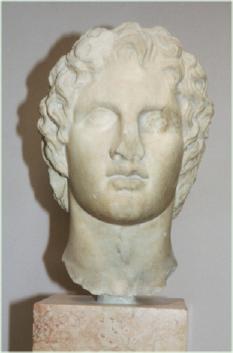
Alexander the Great
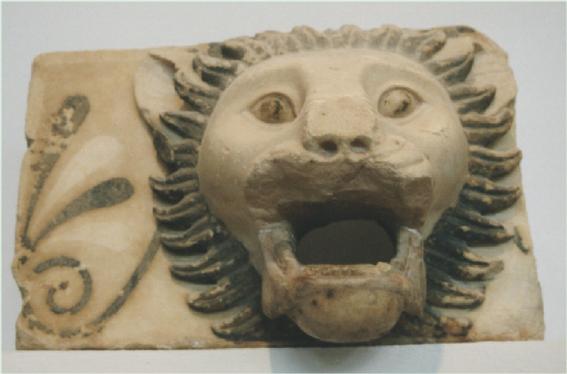
Lion's head
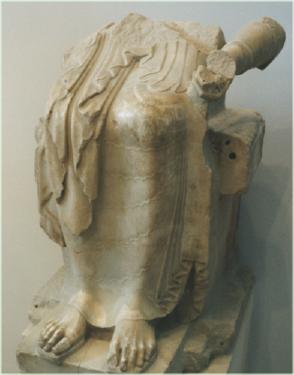
This woman has been reduced
to a
lap, feet, and a bit of an
arm.
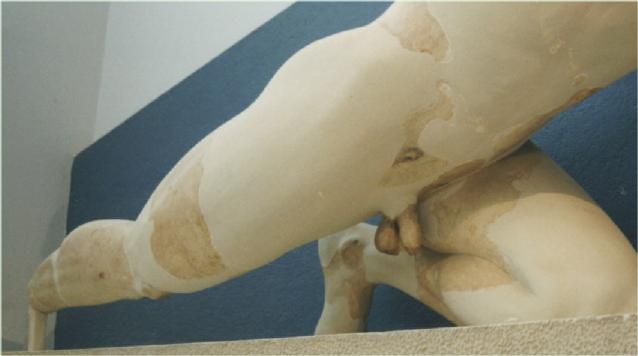
While this fellow has lost
head, arms, and one foot, but still retains much important equipment.
